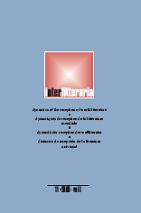Ideological Blocks to the Reception of Existentialism in the Cultural and Political Context of Slovenia: The Case of Edvard Kocbek
Ideological Blocks to the Reception of Existentialism in the Cultural and Political Context of Slovenia: The Case of Edvard Kocbek
Author(s): Vanesa MatajcSubject(s): Literary Texts
Published by: Tartu Ülikooli Kirjastus
Summary/Abstract: In the decades before and after World War II, the reception of existentialism in the culture and politics of Slovenia was programmatically hindered by the political ideologies of the time: political Catholicism, fascism, national socialism, and communism. This is no coincidence, of course: the fin-de-siècle (1850–1918) collapse of metaphysical systems was followed by a flowering of existentialist philosophy and literature, of both theistic and atheistic orientations. The spread of existentialism was stimulated especially by the philosophies of Kierkegaard and Nietzsche and their new concept of man: man who establishes himself in his free (and thus risky) individual decision for a historical action. Political ideologies, by contrast, which flourished especially after the end of World War I, saw the solution to the contemporary cognitive and ethical crisis in subordinating man to the systemic, social and political order of the collective
Journal: Interlitteraria
- Issue Year: XI/2006
- Issue No: 11
- Page Range: 342-360
- Page Count: 20
- Language: English

